Fly-tipping: Councils demand tougher sentences for worst offenders
- Published
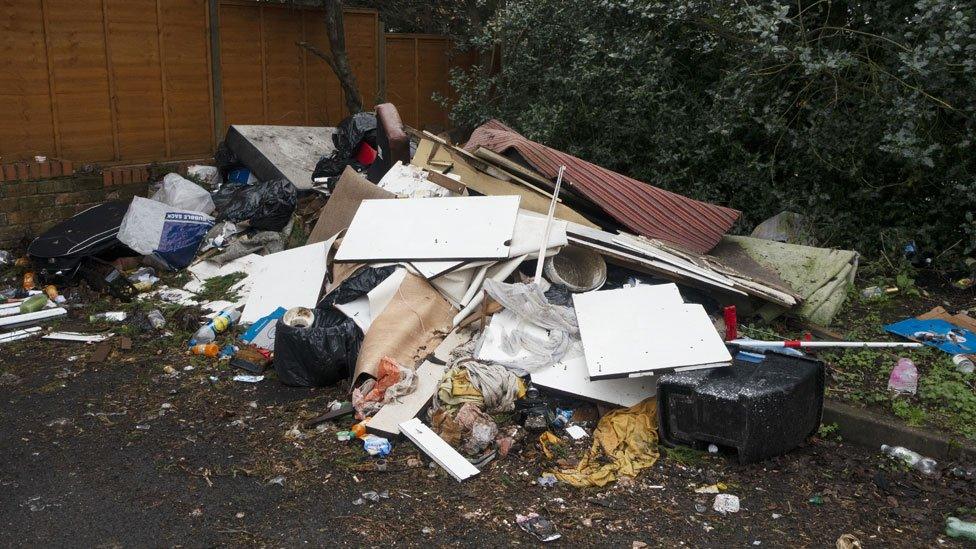
Councils in England are calling for tougher sentences for fly-tippers - as new analysis shows nobody has faced the maximum penalty at magistrates' court since new guidelines were introduced five years ago.
Fly-tipping incidents in England have risen by nearly 40% in five years, to almost one million in 2017/18.
The LGA wants the government to review its guidance to courts on the issue.
A Defra spokesman said combating fly-tipping "remains a priority".
He added that the practice is "completely unacceptable".
Ministers introduced new sentencing guidelines in 2014, with a £50,000 fine or 12 months in prison the maximum punishment, if a case is dealt with at a magistrates' court.
If a case is passed to the crown court, they can issue an unlimited fine, as well as a two-year prison sentence, or five years if the waste is hazardous.
There were 997,553 recorded fly-tipping incidents in England in 2017/18 - a 39.6% rise from 714,637 in 2012/13, according to the the LGA analysis of statistics from the Department for Environment, Food and Rural Affairs (Defra).
Councils can issue fixed penalty notices for more minor offences of fly-tipping, but they say they have less money available to enforce such powers because of pressure on their budgets.
Overall, councils took action on 494,034 incidents in 2017/2018, up by just under 70,000 cases in five years.
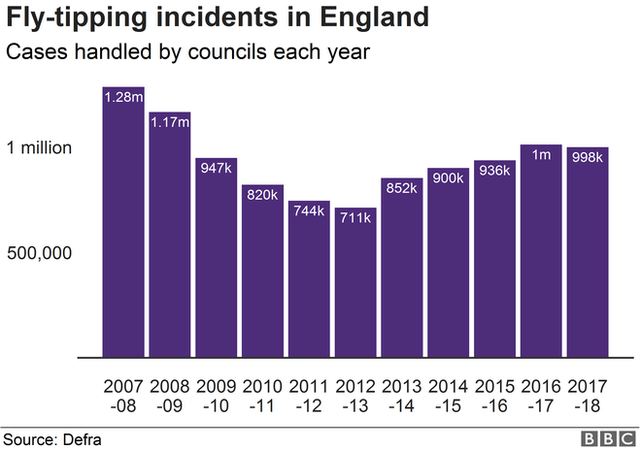
Martin Tett, chairman of the LGA's environment board, said: "Fly-tipping is unsightly, unacceptable and inexcusable environmental vandalism. Councils are doing everything they can to try and deter fly-tippers.
"However, prosecuting them often requires time-consuming and laborious investigations, with a high threshold of proof, at a time when councils face significant budget pressures."
He argued that "consistent and hard-hitting prosecutions are needed to deter rogue operators and fly-tippers" and that "councils also need adequate funding to investigate incidents and ensure fly-tippers do not go unpunished".
The Defra spokesman said: "We have strengthened local authorities' enforcement powers and made it easier for vehicles suspected of being used for fly-tipping to be stopped, searched and seized.
"Our actions are delivering results, with no increase in the number of incidents over 2017/18 for the first time in five years.
"The maximum penalty on indictment for fly-tipping is imprisonment of up to five years or a potentially unlimited fine."
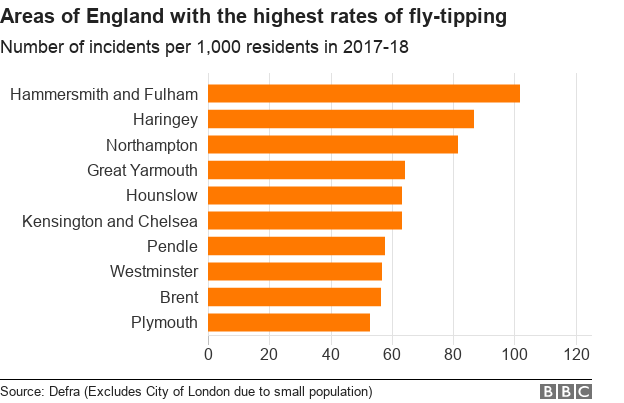
- Published10 May 2019
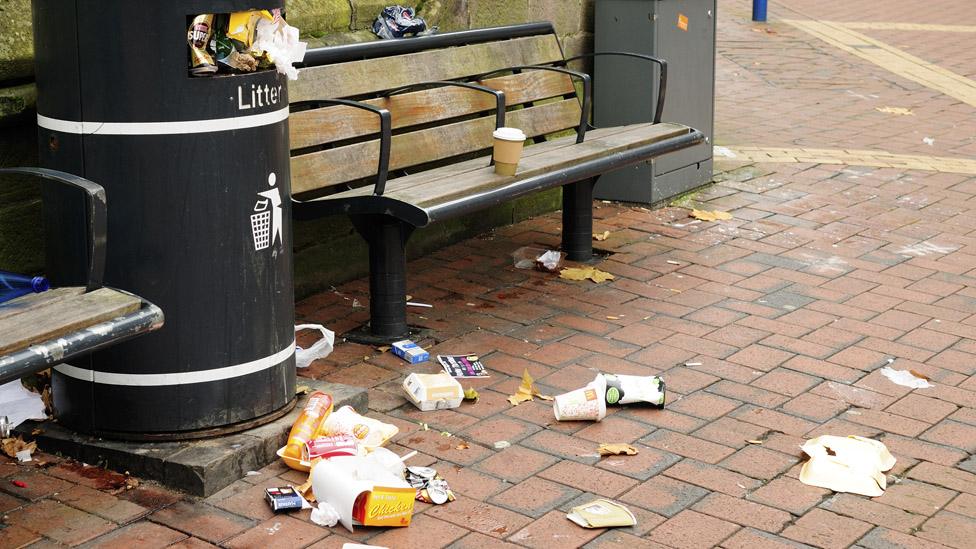
- Published16 April 2019
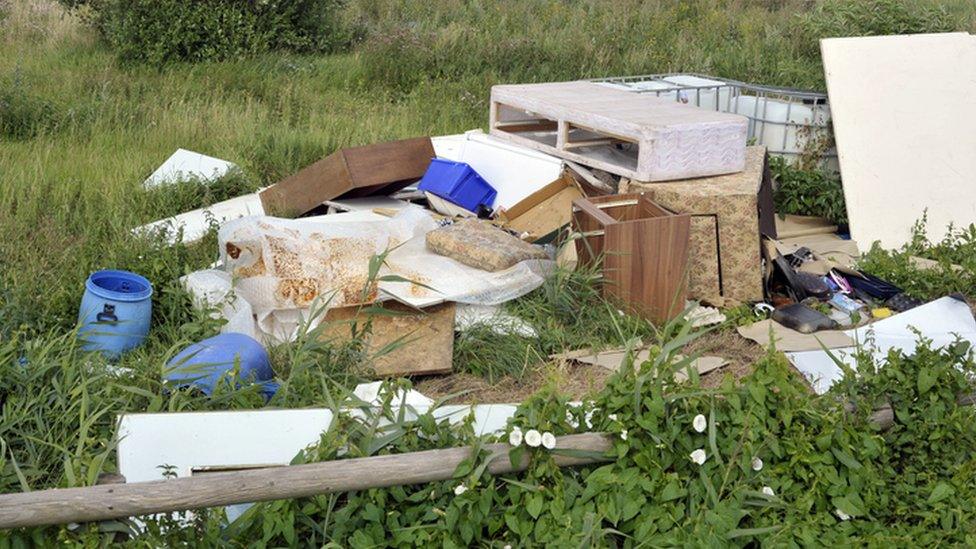
- Published19 February 2019
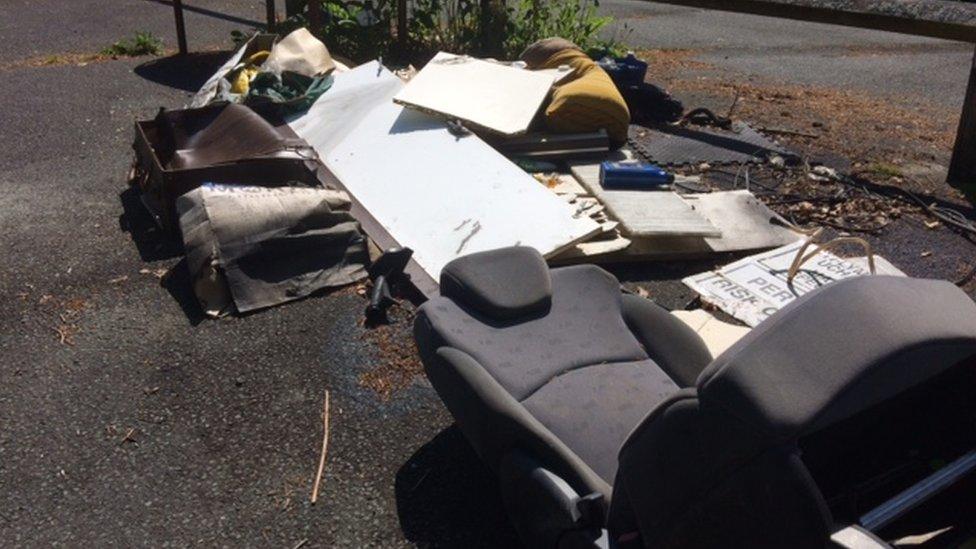
- Published28 January 2019
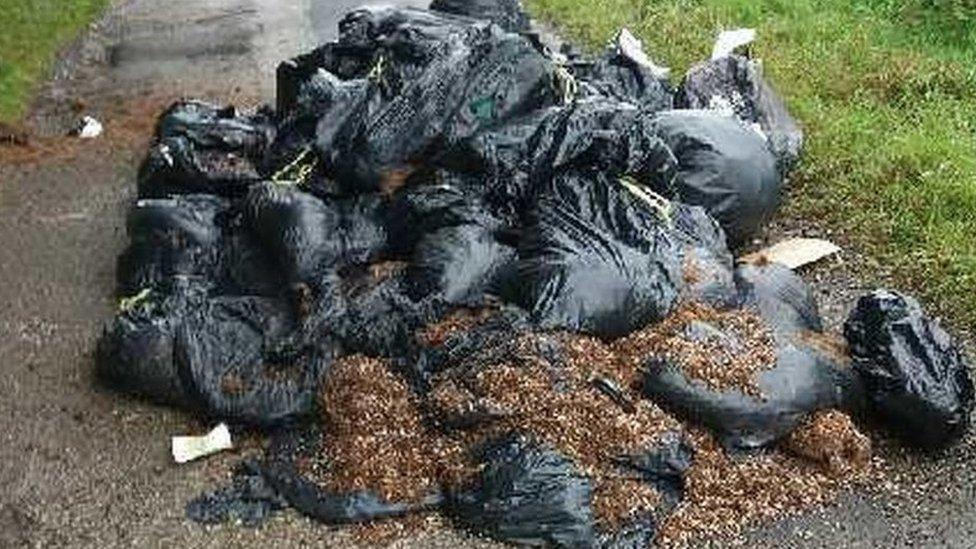
- Published16 November 2018
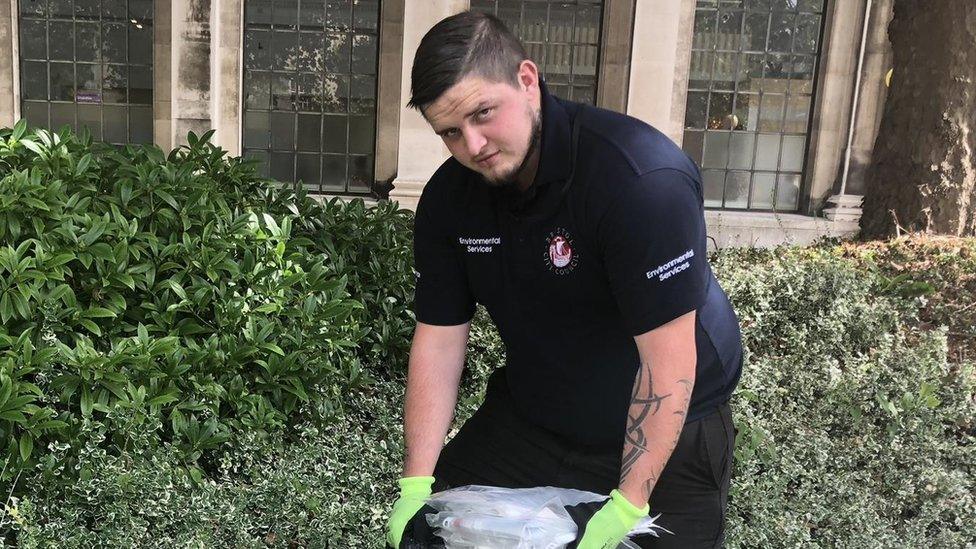
- Published15 November 2018
